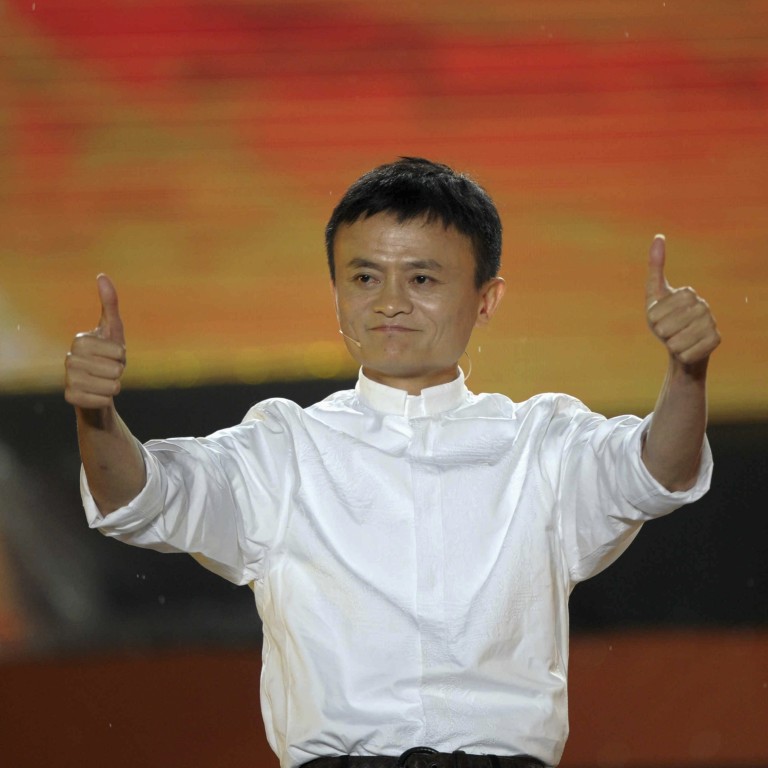
Jack Ma 'threatens to take away bonus' from staff who fail to promote messaging app
Alibaba Group chairman wants employees to raise profile of smartphone messaging application Laiwang
Ma made the comments on Sunday in an internal memo, calling on employees to raise the profile of Laiwang to compete against Tencent's extremely popular Wechat, and implying that those who did not hit the target would lose their bonus.
“I consider those who fail to reach the 100 mark as automatically giving up their bonus,” Ma allegedly wrote.
Laiwang, launched at the end of last year, offers similar text and voice chat features to Wechat. It allows users to log in using their Taobao account.

Elaborating on his appeal, Ma said 80 per cent of his own communication was done via Laiwang. Some of his high-profile Laiwang contacts includes action film star Jet Li and tycoon Liu Chuanzhi, he said.
Ma admitted the challenge posed by his competitor Tencent was no piece of cake. He referred to the ancient Chinese fable of The Foolish Old Man Who Removed the Mountains, calling for patience and perseverance.
The entrepreneur even went so far as to say the success of the app was tied to the group’s upcoming initial public offering.
“If we achieve nothing in mobile networking, we should not consider going public,” he wrote.
Ma’s strategy seems to have worked - at least for now.
Alibaba employees, many of whom say they fear losing their yearly bonus, soon went online to seek external chat buddies.
“Please befriend me if you are on Laiwang, and install the app if you are not using it yet,” reads a Weibo post. “Because I am counting on you for my bonus.”
“I am blocking all my Wechat messages from now on to support my company’s product,” reads another Weibo post. "Please talk to me on Laiwang, “ reads another comment.
China’s online users, however, seemed less optimistic about the future of Laiwang.
“Alibaba is worried about Tencent taking away its users, and its killer platform Taobao doesn’t satisfy users’ communication needs,” Xia Yangbo, a Beijing-based consultant, wrote on his blog. “Even though Ma’s late to the game, it might still be worth a shot.”
A spokesperson at Alibaba's Hong Kong office declined to comment on Tuesday.
Interestingly, while e-commerce giant Alibaba is eyeing a share in China’s mobile internet business, China’s largest search engine Baidu has made public its ambition to set up its own wealth management business.
